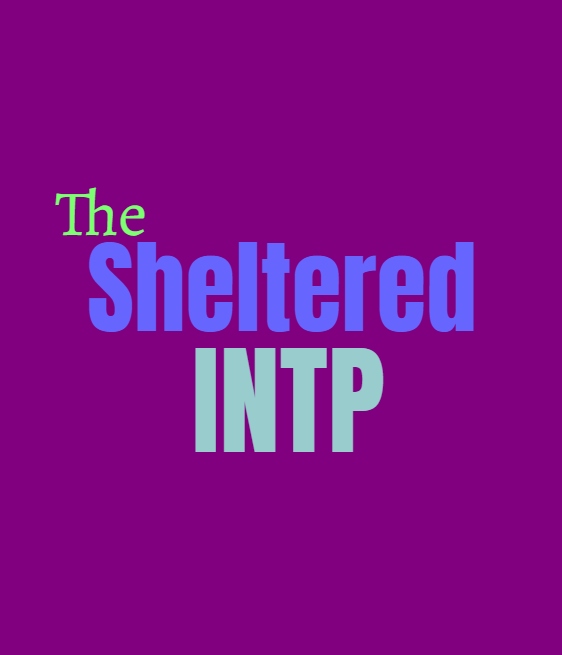INTP Sheltered: What Being Sheltered Does to the INTP Personality
While knowing someone’s personality type can help to understand them better, there are other things which can affect someone’s behavior. Some people are going to behave differently depending on how well they have developed certain function in their stack. For some growing up sheltered can cause them to focus too much on their dominant functions, and so they struggle to really develop other parts of themselves and grow in healthy ways. Being sheltered separates people from the world around them, and so their views can sometimes be altered because of this.
Being sheltered from a young age can certainly be a negative thing for the INTP personality type. This version of the INTP becomes so trapped inside of their own inner world, that they struggle to really connect with other people entirely. The sheltered INTP has not learned to develop their weaker functions, and so understanding emotions and responding to people with understanding isn’t something they have likely learned how to do. This can cause the INTP to seem cold or extremely awkward around other people. This is why being sheltered for a long time can certainly be difficult for them as they get older, and so the INTP will have to learn how to develop these functions later on.
The Sheltered INTP
For the INTP who has been sheltered most of their lives, it becomes truly difficult to connect with others or understand them. INTPs don’t naturally find it easy to understand the emotions or feelings of other people, as this is their weakest function. Since they are not naturally aware of the feelings of those around them, it is something the INTP often has to develop over time. The INTP who want to focus on personal growth and wants to work towards improving themselves, will certainly end up with a much stronger understanding of the people around them. The mature INTP can connect with emotions much better, at least enough to appreciate the best way to show support towards someone. When they have been sheltered and haven’t been exposed to these challenges much, they don’t realize that this is something they need to work on. The INTP becomes completely focused on facts and logic, and so this distances them from understanding human nature and how people’s emotions will affect them and their choices. Instead they will be extremely distant from feelings, and not want to deal with someone who is upset. The sheltered INTP might not know how to show a sense of compassion or even sympathy for someone who is emotional or upset. This makes it truly hard for the sheltered INTP to make the right connections or for people to really want to get closer to them. They will either completely avoid emotional situations, or will be very harsh in how they deal with them. When someone is being emotional the INTP just looks to solve the problem logically, and this can cause them to say hurtful things without intending to. They often don’t even realize they are being hurtful, since they are so focused on facts. The sheltered INTP is also distanced from their own emotions and tries to replace those inner feelings with facts and logic instead. This can actually cause their sense of logic and reason to become skewed as they struggle to process their own feelings in a healthy manner.
Some INTPs who are very sheltered can actually become completely unaware of how to deal with social situations. Because they become so caught up in their own rich inner minds, the world around them becomes far less interesting. They spend time inside of their thoughts and inner imagination, and this causes them to become so disconnected from their physical self. The sheltered INTP might not properly care for their own health because of this, and will spend too much time inside of their thoughts trying to analyze things. They might become socially awkward without much frame of reference on how to respond to people in social situations. This isn’t a normal trait for INTPs, as when they learn to strengthen those weaker functions they become much more connected to the people around them and can be welcoming to certain social interactions. The sheltered INTP however, is so hyper-focused on logic and their desire to analyze and uncover the truth, that everything else becomes much less important to them. In this case their personal growth actually suffers, since they are in their own comfort zones far too much and don’t know how to venture outside of this. They won’t really enjoy being around people all that much, instead they prefer to remain inside of their bubble. Instead of taking chances on making connections the INTP might find themselves cold and distant to most people they meet or encounter in life.
The Healthy INTP
While even the healthy INTP isn’t naturally connected to their own emotions or the emotions of others, that doesn’t mean they don’t develop these abilities. Over time they are often very capable of understanding the feelings of others, and can listen to them and show support. INTPs can be very caring people, and want to do whatever they can to help the people they love. They want to find ways of solving their problems and showing their support, sometimes they are willing to do this in an emotional sense. While these feelings can be difficult for the INTP to process, as they grow and mature they can certainly develop them much better. The healthy INTP truly wants to grow as a person and enjoys the idea of pushing themselves to improve. The healthy INTP really enjoys stepping outside of their comfort zones, and doesn’t like feeling a sense of stagnancy. They will challenge things which seek to control them or keep them feeling trapped in the same position.
Read More About the INTP:
Complete INTP Article Collection
This Post is Brought To You By BetterHelp
